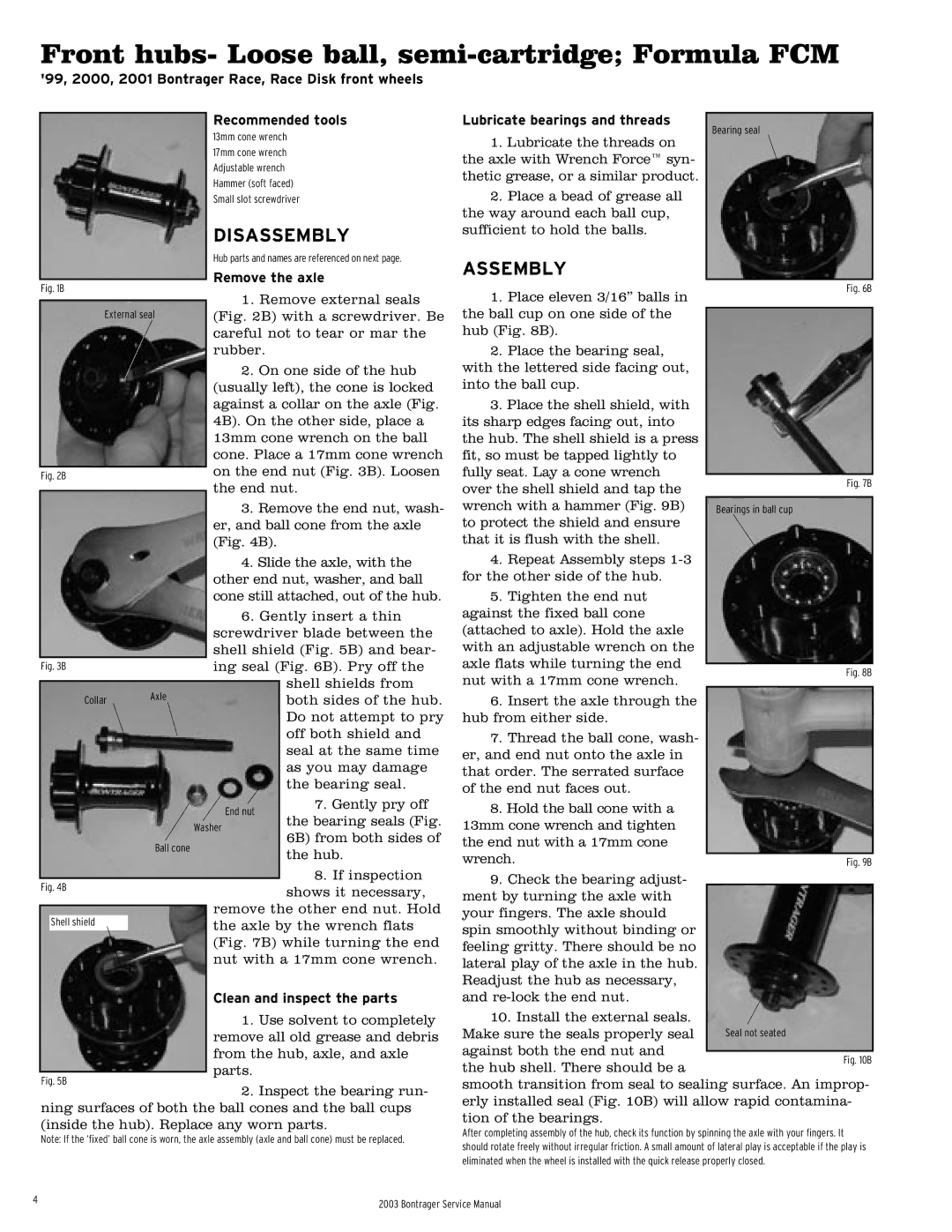231793 specifications
The Bontrager 231793 is an advanced mountain bike tire designed to enhance performance on various terrains while providing users with durability and traction. Known for its dependable construction and innovative features, the 231793 has become a popular choice among cycling enthusiasts seeking a reliable tire for their off-road adventures.One of the key features of the Bontrager 231793 is its versatile tread pattern. The tire boasts an aggressive design that enhances grip on loose and uneven surfaces such as mud, gravel, and dirt. This tread pattern is carefully engineered to allow for quick, confident cornering while minimizing the risk of slip, making it an ideal choice for adventurous riders who tackle challenging trails.
The tire employs a robust casing that not only contributes to its durability but also enhances puncture resistance. This characteristic is essential for mountain biking enthusiasts who venture into rough terrains where sharp objects may pose a threat to tire integrity. The reinforced sidewalls provide added protection against pinch flats, ensuring a smoother, worry-free ride over rocky and harsh surfaces.
Additionally, the Bontrager 231793 is compatible with tubeless setups, which offers substantial benefits in terms of performance. The tubeless design allows for lower tire pressures, improving traction and overall ride quality while reducing the risk of pinch flats. Cyclists can also enjoy a significant reduction in weight by eliminating the need for inner tubes, resulting in a more responsive handling experience.
Another notable characteristic of the 231793 tire is its weather resistance. Designed to perform reliably in various weather conditions, this tire offers excellent traction on wet surfaces without sacrificing performance in dry conditions. This versatility makes it a suitable option for riders who frequently encounter changes in weather and terrain.
In summary, the Bontrager 231793 stands out in the crowded market of mountain bike tires due to its aggressive tread pattern, durability, and tubeless compatibility. Whether tackling steep climbs, navigating technical descents, or exploring diverse trails, this tire is engineered to provide riders with the confidence and control they need for an exhilarating biking experience. Adventure seekers looking for reliability and performance in their mountain biking adventures will find the Bontrager 231793 to be an exceptional choice.

